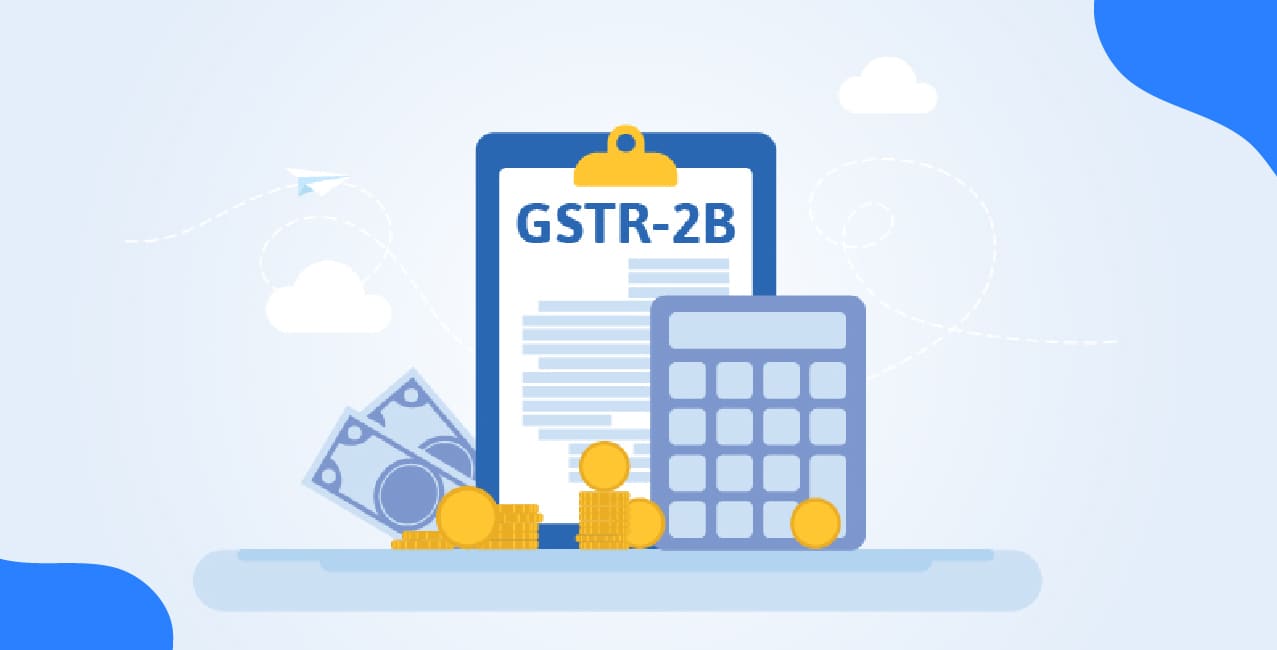GST on Rental Income – Complete Guide for Property Owners

Check Your Loan Eligibility Now
By continuing, you agree to LoansJagat's Credit Report Terms of Use, Terms and Conditions, Privacy Policy, and authorize contact via Call, SMS, Email, or WhatsApp
Rahul, a young software engineer in Sonīpat, rented his spare flat to a local startup for ₹40,000 per month. He happily thought, "Great, that's ₹4.8 lakh extra per year in my pocket!", but he soon realised that leasing property to a business requires GST registration and charging 18 per cent tax. That meant adding ₹7,200 in GST each month — ₹86,400 over the year.
Fortunately, Rahul’s tenant is registered under GST and can claim an input tax credit of ₹86,400 as a business expense. Rahul also hired a cleaning agency for ₹5,000 per month, plus ₹900 in GST, and he can claim input tax credit on that amount too. By following tax compliance, Rahul transformed his casual rental arrangement into a steady, transparent source of income, while staying fully legal and accountable to the government.
Introduction to GST on Rental Income
If you own a house or shop and rent it to someone, the monthly rent you receive may be treated as a taxable service under India’s Goods and Services Tax (GST) system. GST applies to a wide range of goods and services — and yes, in some cases, renting out property counts as a service too.
However, GST does not apply in every case. Whether you need to collect GST on rental income depends on two main factors:
- The type of property (residential or commercial).
- How the tenant uses the property (for personal residence or for business)
Here are the basic rules:
- If you rent your house to someone for residential use, you do not need to charge GST.
- If you rent your house for business or office use, you must charge 18 per cent GST.
- If you rent a commercial property, such as a shop or warehouse, you must also charge 18 per cent GST.
If your total rent from all properties (plus any other services you offer) is more than ₹20 lakh in a year (₹10 lakh in special category states), you are legally required to register under GST.
Read More – GST on Stamp Duty
Rental Categories, Example Rent and GST Rate
Example: Kavita rented her flat to a coaching institute for ₹50,000. Even though it’s a residential flat, since it’s used for business, she must add 18% GST, which means an extra ₹9,000. Total rent becomes ₹59,000.
SAC Codes for Rental Services
Every type of rental is given a code called SAC (Service Accounting Code). This helps decide how much GST is applied.
Example: Ramesh rents his flat for commercial use. He must use the SAC code 997212 to file GST correctly.
GST on Different Rental Uses
Example: Akash listed his flat on a travel app for guests who stay under 29 days for business. Though it is flat, he had to charge 18% GST since it's used for short-term business stays.
GST Registration and Compliance for Landlords
If a landlord's total income from rent exceeds ₹20 lakh per year (₹10 lakh in some states), they must register under GST. This includes both residential and commercial rentals if used for business.
Example: Sneha owns three shops. Each one earns ₹8 lakh a year. So even though no single shop earns more than ₹20 lakh, her total rent income is ₹24 lakh annually. She must register for GST.
GST Invoices and Location Rules
Registered landlords must issue GST invoices. Depending on where the landlord and tenant are located, GST may be split differently:
- If both are in the same state: CGST + SGST
- If they are in different states, IGST
Example: Arjun leases his warehouse in Delhi to a company in Mumbai. Since they are in different states, he must charge IGST.
Reverse Charge Mechanism (RCM)
If the landlord is not registered under GST but the tenant is, the tenant must pay GST themselves. This is called the Reverse Charge Mechanism.
Example: Neeraj, a retired person, rents his store to a travel agency. Neeraj isn’t registered for GST. So, the agency pays the GST itself under RCM.
Input Tax Credit (ITC) Benefits for Tenants
If a business pays rent and also pays GST on that rent, it can get that GST amount back through Input Tax Credit (ITC). This helps businesses save money.
Example: Priya’s company pays ₹1,00,000 as rent and ₹18,000 GST. They also pay ₹10,000 monthly for cleaning with ₹2,000 GST. The company can claim ₹20,000 as ITC.
Common ITC Claim Examples
Example: Manish rents an office for ₹75,000 and pays ₹13,500 as GST. He also spends ₹10,000 on maintenance (with ₹1,800 GST). He can claim a total ITC of ₹15,300.
Also Read - GST on Commercial Property
ITC for Landlords
Landlords can also claim ITC if they:
- Pay GST on the maintenance of the rental property
- Hire security services
- Take legal or tax help for a rental business
This is allowed only if:
- The service is used for business
- They issue proper GST invoices
Example: Arti owns a commercial building. She pays ₹25,000 for security and ₹4,500 GST. She can claim ₹4,500 as ITC.
Conclusion
The GST system has simplified TV pricing in India by replacing multiple taxes with just two rates, 18% for TVs up to 32 inches and 28% for larger ones. This makes prices more transparent and easier to predict. Shoppers enjoy affordable options, while businesses benefit from input tax credits.
Larger TVs are still taxed higher as luxury items, maintaining a balance between accessibility and luxury. Knowing the GST rates helps buyers plan better, avoid unexpected costs, and make informed decisions whether purchasing for home or office use.
FAQs
Is GST applicable to residential rent?
Exempt unless used for business or leased short‑term (<29 days).
What is the Commercial rent GST rate?
It is 18%.
HSN code for rental?
997211 - residential; 997212 - commercial.
Who must register for GST?
Landlord if annual taxable turnover > ₹20 lakh (₹10 lakh in special states).
Can the tenant claim ITC?
Yes, if registered under GST and using the property for business.
Is RCM applicable?
Yes, when the landlord isn’t registered, the tenant pays GST directly.
Other Important GST Pages | ||||
About the author

LoansJagat Team
Contributor‘Simplify Finance for Everyone.’ This is the common goal of our team, as we try to explain any topic with relatable examples. From personal to business finance, managing EMIs to becoming debt-free, we do extensive research on each and every parameter, so you don’t have to. Scroll up and have a look at what 15+ years of experience in the BFSI sector looks like.
Subscribe Now
Related Blog Post
Recent Blogs
All Topics
Contents
Quick Apply Loan
Consolidate your debts into one easy EMI.
Takes less than 2 minutes. No paperwork.
10 Lakhs+
Trusted Customers
2000 Cr+
Loans Disbursed
4.7/5
Google Reviews
20+
Banks & NBFCs Offers
Other services mentioned in this article








